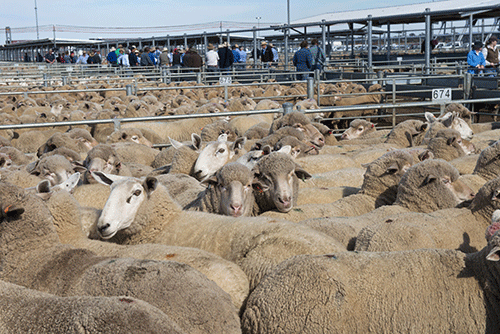OKAKARARA – Otjozondjupa governor James Uerikua is deeply bothered by the continued trend of exporting livestock on the hoof and warned that if left unchecked, it could collapse the local meat sector.
Uerikua, who spoke to AgriToday on the sidelines of the recent Okakarara Annual Trade Fair, said it is high time for government and local stakeholders to put a stop to the perpetual tendency of exporting livestock on the hoofs, especially live weaners to neighbouring South Africa and others.
Not only does such a trend threaten to disrupt and collapse the domestic meat value chains, but the governor said it also continues to deny local farmers decent income for their animals at local auctions, as they have no control over the bigger market forces.
“It’s a big problem and I have continuously raised it with our local farmers and their respective unions, saying it is time we do something about it. I know as a fact that this is not a problem we will fix in one or two years, but we must already start putting our own processes and systems in place now before it’s too late for our local farmers. We are already dealing with drought in many parts of the country and this is the last thing our farmers deserve,” he said.
“Just like I pointed out in my state of the region address, I can tell you now that we exported a total of 2 500 weaners on the hoof to South Africa just last year alone, and that should be very worrying for any serious leader. With such a figure in weaner exports, it is unsustainable and unfair to the farmers and to the throughput of our local feedlots. Local value addition is the way to go.”
He said the local sector in collaboration with government must invest in areas that will add to the local value chain and in local entities that will create strong and performing markets for Namibian farmers.
Market forces
Meanwhile, the latest statistics from the Meat Board of Namibia show how weaner prices struggled to recover during the second quarter of 2023 and averaged only N$24.97/kg by the end of the period, which mostly covered the market trends of August. This is a decline of 31.7% compared to the 2022 level of N$36.58/kg.
The decline is attributed to the weakening of demand for Namibian weaners by South Africa whilst South African weaners on the other hand, fetched relatively higher prices and averaged N$32.05/kg, which is N$7.08/kg higher than Namibian weaner prices during the second quarter of 2023.
The ratio between live exports and slaughtering in the country improved with 53.0% of all cattle marketed being slaughtered at A, B & Class abattoirs while live exports market share reduced and averaged 47.0% – a decline of 5.9% of total marketing.
But generally, market signals appeared to be well-functioning in the livestock and meat industry as producers responded well to relatively attractive prices offered by A-class abattoirs, while B2 producer prices paid by export-approved abattoirs south of the veterinary cordon fence averaged N$61.06/kg.
This is a 0.5% increase from the average N$60.77/kg paid last year during the same period.
In total, during the same review period, 78 212 cattle were marketed during the second quarter of 2023, which is an 8.0% growth from the levels observed in the second quarter of last year.
More sheep on the hoof
The same trend of exports on the hoof was also observed in the sheep sector, as statistics show that a total of 276 325 sheep were marketed during the quarter under review relative to the 2022 levels of 234 354 sheep.
The improved performance in sheep marketing was driven by a sustained growth in the live export of sheep coupled with increased slaughtering at export-approved abattoirs.
Namibian export-approved abattoirs continued paying higher producer prices relative to Northern Cape abattoirs during the second quarter of the year. On average, Namibian export-approved abattoirs paid N$89.04/kg for the A2 grade, N$8.38/kg more compared to Northern Cape abattoirs, which paid N$80.96/kg for the same grade.
This price difference is N$3.40/kg more than the Meat Board-established nominal benchmark difference of N$4.98/kg, which is in favour of Namibian abattoirs.
– ohembapu@nepc.com.na



